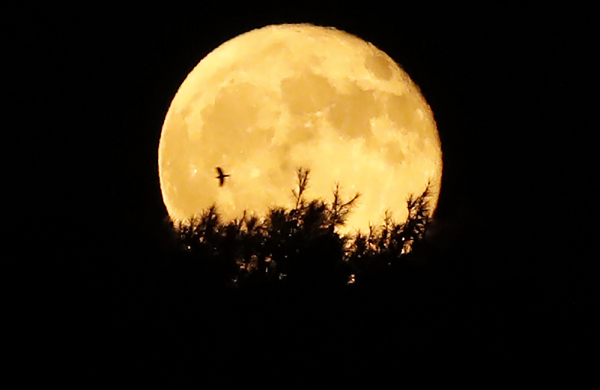Black Moon 2016: When And How To Watch The Rare Second New Moon Of The Month

A relatively rare occurrence will take place on Friday in the nighttime sky: a black moon.
The phenomenon, which hasn’t occurred since March 2014, conjures all sorts of concerns for witchcraft and other end-of-the-world predictions, but in reality is a relatively dull compared to other moon events. It is technically just the second new moon within a calendar cycle
The official time of the black moon in the Western Hemisphere starts at 8:11 p.m. EDT Friday. Skywatchers will have to look really, really hard if they want to see it.
The overriding problem is the black moon is essentially invisible. A black moon occurs when the side of the moon illuminated by the sun is facing away from Earth, which means that it can't be seen by the naked eye.
Black moons and blue moons, which are second showings of a full moon during a single calendar month, occur because the moon does not rotate in exact rhythm with the Earth’s 12 months. Because the moon’s phases cycle every 29.5 days or so on average compared to the 30 or 31 days counted in the Gregorian calendar, there is a double-dipping for black moons every 32 months or so.
So why even bother with the different names?
One theory is that when there was more reliance on subsistence farming, people would rely on the moon cycles to know when the harvest and other events would come. As a way to avoid confusion by the second appearance of a new or full moon, they labeled the new ones differently.
Others trace the names back to simple seasonal variations that rely on tradition for naming moons. Calling the third full moon in a season with four full moons, for instance, would be necessary just before Christmas because the last full moon before the holiday is always named the “yule” moon, according to Space.com.
The next black moon won’t occur until July 2019.
© Copyright IBTimes 2025. All rights reserved.






















